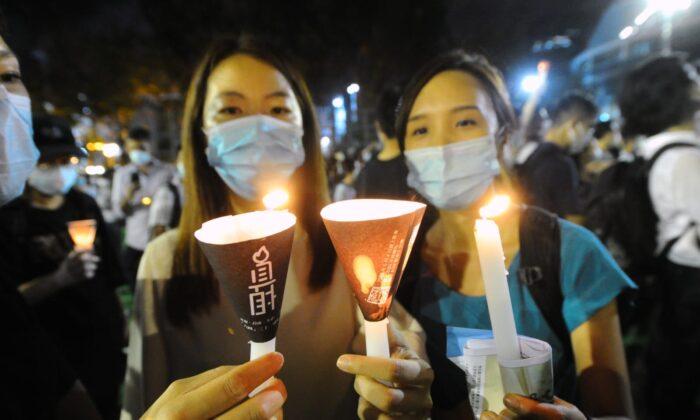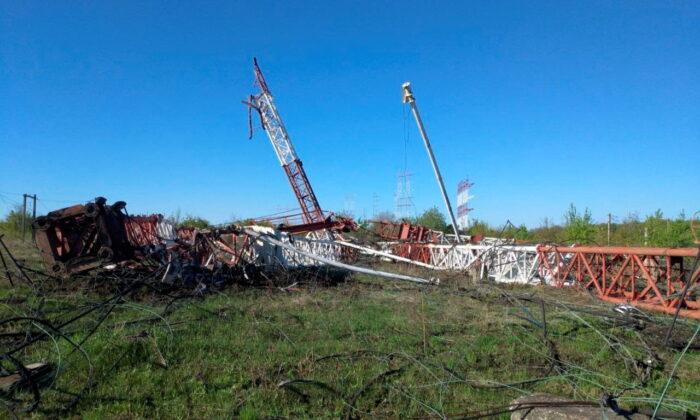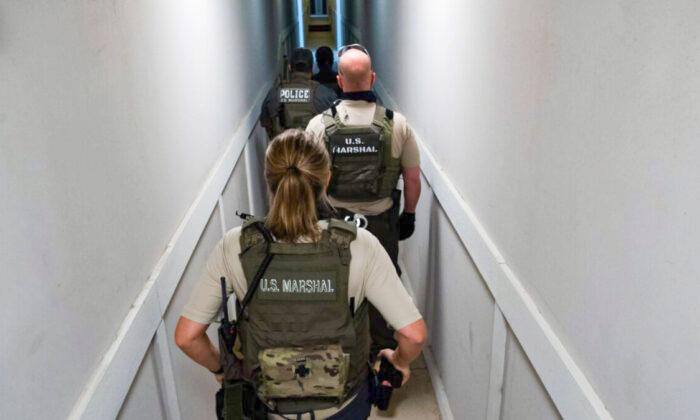The Congressional-Executive Commission on China (CECC) on June 27 backed expert calls for the United Nations Human Rights Council (UNHRC) to hold the Chinese regime accountable for human rights abuses.
The experts, who work on various mandates from the U.N.-backed Human Rights Council, raised in their statement a number of concerns over the “repression of fundamental freedoms in China.”
This includes the Chinese regime’s repression of religious and ethnic minorities in its northwestern Xinjiang region and Tibet, allegations of excessive force against Hong Kong protesters, and reports of retaliation against people who spoke out about the COVID-19 outbreak.
“U.N. independent experts have repeatedly communicated with the government of the People’s Republic of China their alarm regarding the repression of fundamental freedoms in China,” the statement said. “The U.N. independent experts believe it is time for renewed attention on the human rights situation in the country, particularly in light of the moves against the people of the Hong Kong SAR, minorities of the Xinjiang Autonomous Region, the Tibet Autonomous Region, and human rights defenders across the country.”
The experts highlighted their concerns about the Chinese Communist Party’s so-called “national security” legislation on Hong Kong. Beijing’s rubber-stamp legislature, the National People’s Congress (NPC), bypassed Hong Kong’s local legislature in late May to enact the legislation that would criminalize activities connected to subversion, succession, terrorism, and foreign interference.
The NPC on Sunday began reviewing its proposed law for the city, which the experts said would “introduce poorly defined crimes that would easily be subject to abuse and repression” and could allow Beijing to encroach upon the city’s special status.
Under the Sino-British Joint Declaration, which set the terms of Hong Kong’s transfer to Chinese rule, the regime agreed to grant the city autonomy and freedoms not enjoyed in the mainland, under the formula of “one country, two systems.”
Chilling Effect
Wilson Leung, a barrister in Hong Kong and a member of the Progressive Lawyers Group, told The Epoch Times that news of the legislation has already had a chilling effect on Hong Kong residents. Activists and groups who were once vocal and critical of the CCP are growing increasingly silent and fearful of repercussions.“After the proposed law was announced, we were already seeing a lot of self-censorship among activist groups who have become a lot more afraid of talking to international NGOs, talking openly to international political leaders, and foreign press, because any of this could be evidence of foreign collusion in the future,” Leung said in a phone interview from Hong Kong. “We know how vague and widely Beijing uses these concepts.”
“That’s already among activists, who are relatively more willing to take a stand. Among other people, lots are deleting their social media accounts or their history to make sure that nothing they said in the past may be seen as critical of the communist government,” Leung continued.
“I have friends buying burner phones to speak anonymously, because anything you say with your real phone number, may again be evidence against you. We know that there is a plan to station mainland security agents in Hong Kong, and that brings with it the fear of technological surveillance that they have in the mainland—which would mean that anything you say on your phone may no longer be safe.”
The experts in their statement urged the 47-member state council to “act with a sense of urgency to take all appropriate measures to monitor Chinese human rights practices.” They suggested the UNHRC establish an impartial and independent U.N. “mechanism” to “closely monitor, analyze, and report annually on the human rights situation in China.”
Leung added that while calls from international bodies against human rights abuses committed by the Chinese regime are a “step in the right direction,” they are unlikely to deter Beijing in the long run.
CCP Tactics
Leung warned that the Chinese regime may employ similar tactics as it has used with Xinjiang, where more than a million Uyghurs and other ethnic minorities are believed to be detained in the region’s vast network of camps, which Beijing says are to “educate and transform” those whom the CCP deems at risk of the “three evil forces” of “extremism, separatism, and terrorism.”Despite the regime’s claims of reeducation, former Uyghur detainees have told The Epoch Times that they were subject to torture, forced to denounce their faith, and forced to pledge loyalty to the CCP while held for unknown reasons in often overcrowded facilities.
“In Xinjiang, they’re using a highly exaggerated threat, and then using that as an excuse to impose draconian controls on the population, which it wants to suppress,” Leung said. “In Hong Kong, they used the protests last year to point out that there was violence occurring and therefore they needed these new oppressive laws which will apply controls over many more people than were involved in violence.”
“They will now use the lack of any open dissent, and say that ‘everyone is happy here,’ ignoring the fact that this is because they have severely criminalized and punished it.”






Friends Read Free